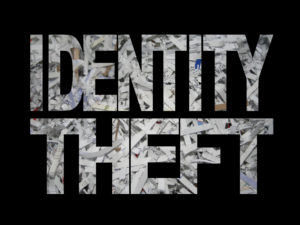
As technology continues to dominate every part of our lives, the threat of identity theft has become a significant target of criminals seeking to cash in on vulnerable consumers.
Despite the efforts of law enforcement, criminals have simply become more sophisticated. Hacking stories into company databases have become commonplace, despite the application of highly advanced protection solutions.
A couple of alarming stats back those facts. According to the Federal Trade Commission, identity theft is the fastest-growing white-collar crime in America. Another eye-opening cause for concern is that a stolen ID is used an average of 30 times before the victim finds out about it. In some cases, it can take months or years before you even realize you’re a victim.
Identifying Types of Identity Theft
Identity theft involves any action where a person knowingly uses another individual’s personal identifying information without their authority or consent. Theft occurs when that information is used to obtain goods or services using that information.
The first step in knowing how to combat identity theft is understanding all of the places where you could be vulnerable. Let’s take a look at some of the different ways you’re at risk.
Social Security ID Theft. A thief who gets your Social Security number can steal benefits from you that you’ve worked for your entire life. That could include welfare benefits, HUD benefits, medical and dental claims, and in some cases, falsifying passports to leave and enter the U.S. undetected.
Driver’s License ID Theft. Your driver’s license has a wealth of information that criminals can use to enrich themselves. They can apply for loans, credit cards, open bank accounts, buy cars, boats, and other big-ticket items, and have it all charged to you. Because your home address is listed on your license, criminals know where you live and can commit other kinds of crimes ranging from burglary, robbery, and stalking to more serious acts against you and your family.
Existing Account ID Theft. When a thief has pins or access information to your bank accounts, they can quickly go in and empty all the funds before you have an inkling of what’s happened. At other times, a thief may only make small purchases or withdraw small amounts to test how vulnerable you are. Checking your accounts regularly can thwart this practice.
New Account ID Theft. Instead of hacking into existing accounts, it’s also common practice for identity thieves to set up new accounts in your name. Once accounts are approved and opened, they will run up balances before you even get a statement.
Medical ID Theft. This information can be used to file false workers’ compensation claims, file for Social Security and Medicare benefits, apply for false disability claims, insurance scams, and have legitimate medical procedures done that ultimately stick you with the bills.
Medical identity theft can happen in many ways. For example, someone posing as a Medicare official may contact you by phone or mail, telling you they need to update your medical records or information so that your coverage can be re-evaluated. You will be asked for your personal information, such as your Medicare number, Social Security number, and bank account information, along with the claim that these details are needed to process an overdue medical bill. However, Medicare already has this information and does not need to collect it from you. Medicare will never request personal information by phone or mail.
Medicare can also be a victim of ID theft, as well. That happens when Medicare is billed for services or supplies that a beneficiary never got. For example, if someone obtains your Medicare card information, they can bill Medicare and then pocket the money for the fake services. A healthcare provider can also bill Medicare for care a beneficiary never received, also pocketing funds for services that were never rendered.
Bank Fraud. This involves a wide range of possible criminal actions. Your ID can be used for forgery, embezzlement, wire fraud, stolen checks, accounting fraud, ATM theft, and other similar financial crimes. The key here is that when banks are involved, it is a federal crime that can result in a hefty penalty ranging up to 30 years in prison and fines of $1 million or more.
Employment ID Theft. If a person can’t get a job because they have a criminal record or poor credit, they can piggyback off of your good name and finances to get a job in your name. Complicating matters is when an employer reports wages to the IRS, that agency will want to collect taxes from you! That can also mess up your Social Security wages and impact your retirement many years down the road.
Child ID Theft. The very young are especially at risk for identity theft because their account information is not checked as often as working-age adults. Scammers often use children’s’ Social Security numbers to apply for government programs, take out loans, and so forth, which often isn’t detected until years later. Information can be stolen from school databases or other soft targets.
Senior ID Theft. Seniors are also highly vulnerable. As many as 20% of seniors may experience some form of financial exploitation, including identity theft, every year. For seniors, identity theft is more likely in cases where there are diminished capacities due to age or illness, but any senior can fall victim. Seniors are often more trusting and less likely to monitor their financial accounts. They also have more considerable savings and don’t know what threats to look out for, making the potential for larger losses more likely. The tragic part of senior identity theft is that seniors have much less time to try and recoup losses if they become victims.
Estate ID Theft. If you think identity theft stops when someone passes away, you are wrong. Unscrupulous criminals have been known to use a deceased person’s information to drain accounts, set up new loans, and claim government benefits. Surviving family members are the real victims because it means they will not inherit what they were entitled to receive.
Tax ID Theft. This is a favorite target of thieves who will call or email and threaten you with IRS sanctions if you don’t comply with their requests. This is called “phishing,” and the goal is to get you to provide personal information or click on links that either lead to bogus websites or install malware to hack into your computer. If you submit a return that is rejected, this could be one of the reasons why. You need to contact the IRS immediately and may have to file a fraud claim to protect yourself.
Protecting Yourself and Recovering from Identity Theft
Recognizing the growing threats posed by identity theft, lawmakers have enacted several protections in recent years. One such law is “The Identity Theft Protection Act.” It eases the burden of a victim’s financial liability for falsely incurred debt and exonerates them of the other crimes committed in his/her name. Several states have also enacted similar legislation as well.
Implement a protection strategy
Between widespread mass hacking of personal information and the individual threats you are at risk for, it’s wise to have a strategy to protect yourself.
To start, monitor all your bills that come in monthly. Look for unfamiliar charges and dispute anything you don’t recognize or remember. Augment these efforts by checking your credit reports regularly as well. You can request a free report from each of the three major credit bureaus—Experian, Equifax, and TransUnion—once per year. Make sure to monitor all family members’ credit information, even young children, as part of your efforts.
Think about signing up for a credit monitoring service such as Lifelock. This will give you a high degree of protection. Your accounts and identity information will be protected proactively, guarding against breaches that can exploit your identity. These services also scour known malicious websites for your personal information to see if it is being used for fraudulent activity.
When you have major life-changing events, such as a death or divorce, notify credit bureaus and the deceased person’s financial institutions. Consider placing a freeze on the account if you are the executor to avoid unauthorized access.
If you’re a victim of identity theft, take the following steps:
Contact the companies where you know fraud or theft took place. Ask to close or freeze all accounts so that no one can add any new charges without your authorization.
Change your login, passwords, and PIN data.
Review copies of your credit reports. Also, contact the major credit bureaus and place a one-year fraud alert on your information. It’s free, and by alerting one company, they must tell the other companies as well.
Experian.com/help
888-EXPERIAN (888-397-3742)
TransUnion.com/credit-help
888-909-8872
Equifax.com/personal/credit-report-services
800-685-1111
Report your identity theft to the Federal Trade Commission. Complete the online form or call 1-877-438-4338.
Consider filing a report with your local police department. Be prepared to give as many details as possible, including a copy of your FTC complaint. Get a copy of the police report, which you may need to try and recover potential losses.
Close any new accounts opened in your name that you did not authorize.
Remove unauthorized charges from your impacted accounts.
Take steps to correct your credit reports.
If you haven’t already done so, add a fraud alert service or place a freeze on your accounts. You may not be out of the woods yet.
For additional steps and information, the Federal Trade Commission maintains the website IdentityTheft.gov which has a lot of additional information you can use to assist you in recovering from incidents of identity theft.
 Protect Yourself from Tax-Related Identity Theft Before it is Too Late
Protect Yourself from Tax-Related Identity Theft Before it is Too Late  Guarding Against IRS and Social Security Scams
Guarding Against IRS and Social Security Scams  Don’t let thieves steal your personal health information
Don’t let thieves steal your personal health information  Be In The Know: 22% of Students Fall Victim to Identity Theft
Be In The Know: 22% of Students Fall Victim to Identity Theft  Take Control of Your Personal Information to Avoid Identity Theft
Take Control of Your Personal Information to Avoid Identity Theft 

